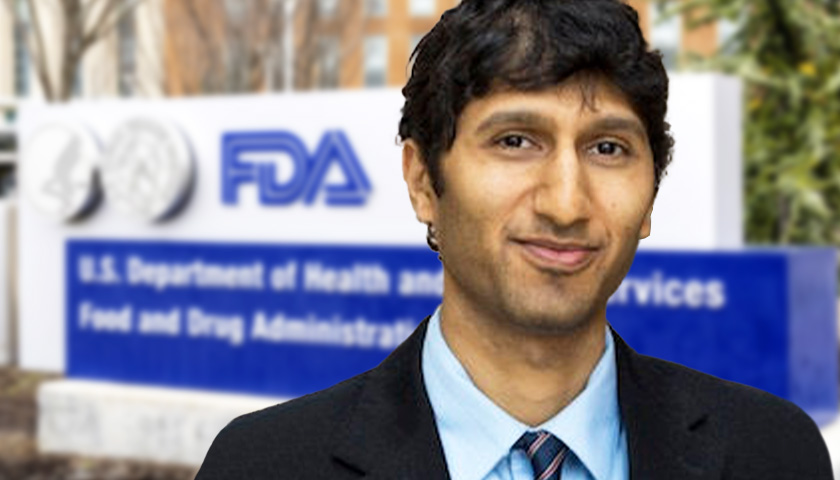by Debra Heine
A doctor “crashed” a Food and Drug Administration’s meeting with outside vaccine experts earlier this week, to share a whistleblower’s story about the data integrity issues that plagued one of Pfizer’s clinical trials.
In September of 2020, a researcher from an organization testing Pfizer’s vaccine at several sites in Texas, emailed a complaint to the FDA, informing the agency of the company’s dangerously shoddy research practices. The FDA took no action on her email, and Pfizer continues to use the company.
Last week, the FDA authorized a second round of booster shots for people 50 and older and for those with certain immunocompromising conditions.
The Vaccines and Related Biological Products Advisory Committee (VRBPAC) met in an open session on April 6 to discuss “considerations for use of COVID-19 vaccine booster doses and the process for COVID-19 vaccine strain selection to address current and emerging variants.”
Dr. Peter Doshi, an assistant professor of pharmaceutical health services at the University of Maryland, and an associate editor at The British Medical Journal (BMJ), took the opportunity to tell the whistleblower, Brook Jackson’s, story.
In the fall of 2020, Jackson was the regional director for the Ventavia Research Group, the company that was conducting Pfizer’s pivotal phase III trial in Texas. She told the BMJ last November that she witnessed researchers falsifying data, unblinding trial participants, and employing inadequately trained vaccinators. She also said researchers were slow to follow up on adverse events.
Jackson has submitted her evidence to a federal court.
During an interview with the Blaze’s Daniel Horowitz in February, the whistleblower said Pfizer’s clinical trials were so riddled with fraud and abuse of the scientific process there was zero credibility left.
In her 25 September email to the FDA Jackson wrote that Ventavia had enrolled more than 1000 participants at three sites. The full trial (registered under NCT04368728) enrolled around 44 000 participants across 153 sites that included numerous commercial companies and academic centres. She then listed a dozen concerns she had witnessed, including:
• Participants placed in a hallway after injection and not being monitored by clinical staff
• Lack of timely follow-up of patients who experienced adverse events
• Protocol deviations not being reported
• Vaccines not being stored at proper temperatures
• Mislabelled laboratory specimens, and
• Targeting of Ventavia staff for reporting these types of problems.
“She provided the BMJ with company emails, internal documents, text messages, photos, and conversations with company employees,” Doshi told the FDA panel, adding that the materials provided evidence that Ventavia carelessly exposed personal information about the trial participants.
“Unblinding, as I think everybody knows, creates serious concerns about data integrity,” Doshi noted.
The doctor continued:
It’s not hard to imagine that corners were cut, and mistakes were made. Some mistakes are benign, but others carry serious consequences to data integrity.
One hopes Ventavia is an extreme outlier, but we need more than just hope. We need evidence that the data were dealt with properly. We need regulatory oversight. But despite whistleblower Brooke Jackson’s direct complaint to the FDA, the FDA never inspected Ventavia. In fact, the FDA only inspected nine of the trial’s 150+ sites before approving the vaccine. And Pfizer continues to use Ventavia for its trials.
Doshi also hit the FDA for failing to adequately monitor Moderna’s clinical trials.
“The FDA had over a year, and inspected just one—one!—of the trial’s 99 sites,” he lamented. “How can the FDA feel confident in the Moderna data based on a one percent sample?”
Doshi concluded by saying that “the public has a right to data transparency.”
“The public paid for these products, and the public takes on the balance of benefits and harms post vaccination,” he said. “The FDA has an obligation to act.”
Dr. Peter Doshi’s research “focuses on policies related to drug safety and effectiveness evaluation in the context of regulation and evidence synthesis,” and he’s a longtime advocate for greater public access to clinical trial data.
[rumble]https://rumble.com/embed/vxi33b/?pub=lkvqh#?secret=wEq1DwQTKe[/rumble]
– – –
Debra Heine reports for American Greatness.
Photo “Peter Doshi” by Stanford University. Background Photo “Food and Drug Administration” by Felton Davis. CC BY 2.0.





